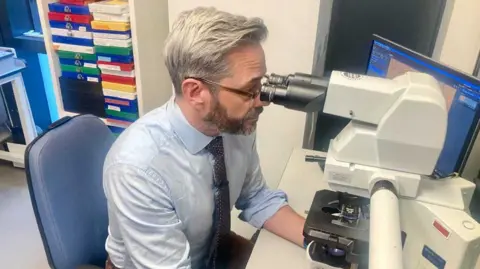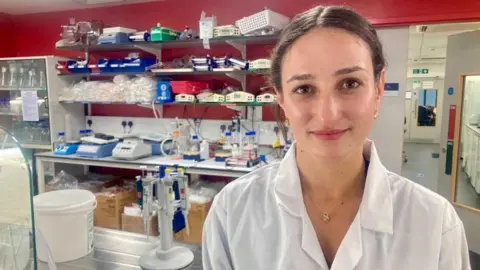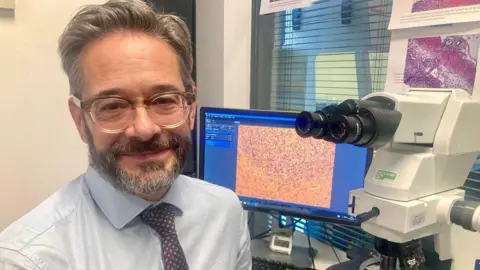Could AI help treat brain tumours in children?
 Mousumi Bakshi/BBC
Mousumi Bakshi/BBCResearchers are investigating how AI could help identify new treatments for children with brain tumours.
Although rare, about 420 children in the UK are diagnosed with brain cancer every year.
The team from the Cancer Research UK Children’s Brain Tumour Centre of Excellence in Cambridge will also look at how to improve survival rates.
Youngsters with the most aggressive form of the disease are currently unlikely to survive beyond a year.
 Mousumi Bakshi/BBC
Mousumi Bakshi/BBCDr Elizabeth Cooper, one of the researchers working on the project, said that a child’s brain tumour is different to an adult tumour.
"The brain changes all the time when kids are growing up," she said.
It could be one of the reasons why immunotherapy, which uses the body’s own immune system to help kill cancer cells, has had limited success in treating brain tumours.
"Immunotherapy has changed how we treat cancer but it doesn’t always work for brain tumours," Dr Cooper said.
"What we’ve discovered is that the brain has its own immune system, but we don’t yet know how to use it."
 Mousumi Bakshi/BBC
Mousumi Bakshi/BBCThe group is in the early stages of trying to understand what that could mean for treatment, according to the centre’s co-director Prof Richard Gilbertson.
"We need to design new drugs to treat children’s disease," he said - medicines that were "less toxic and harmful" for children to endure.
The centre has been awarded a multi-million pound grant and part of the money will be spent on using artificial intelligence to create digital models of the most complex brain tumours.
Prof Gilbertson continued: "We’ll be able to use the models to test our treatments in virtual clinical trials, and hopefully identify ones that are kinder for children, unlike radiotherapy for instance which can have pretty horrible side effects."
Follow Cambridgeshire news on BBC Sounds, Facebook, Instagram and X.
